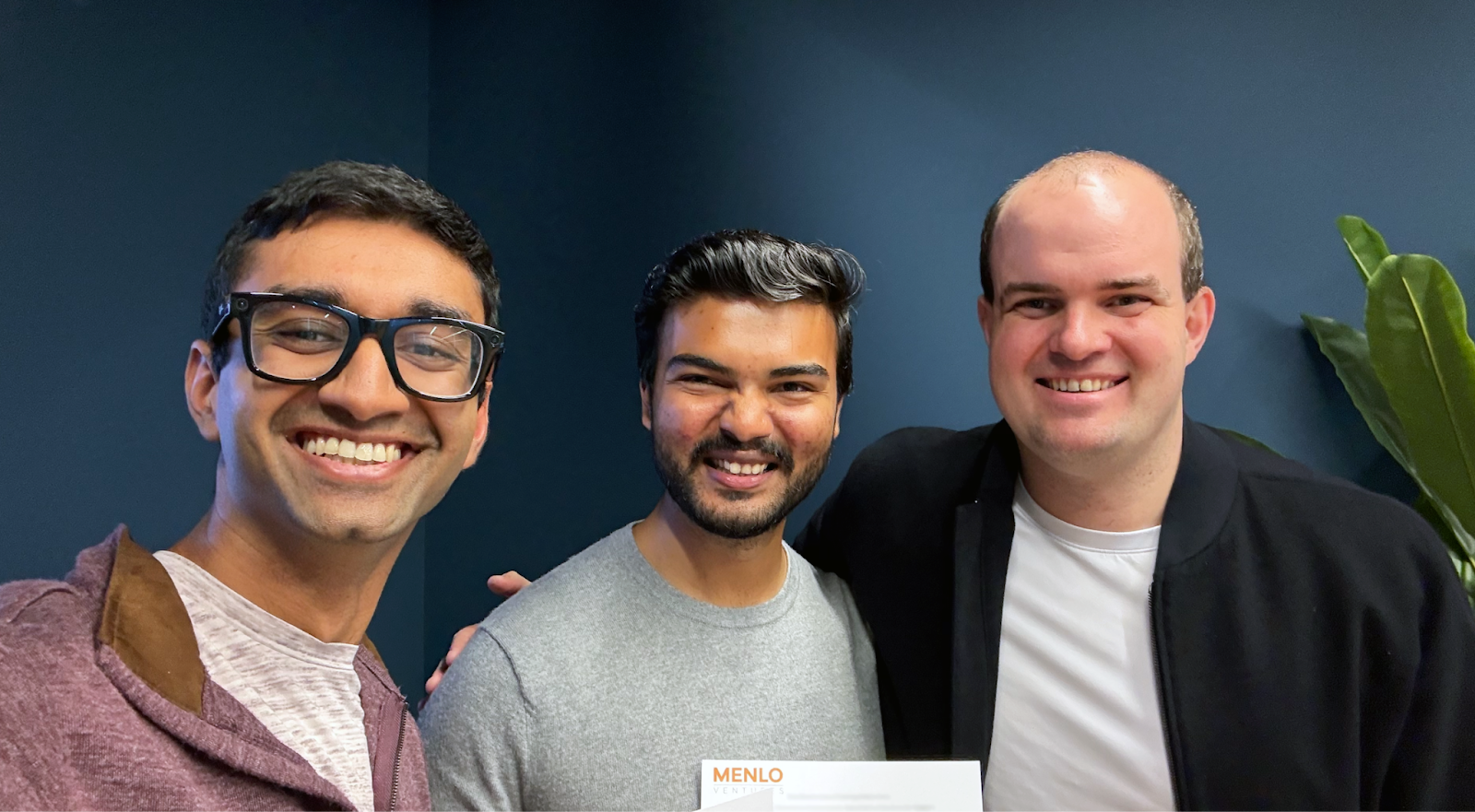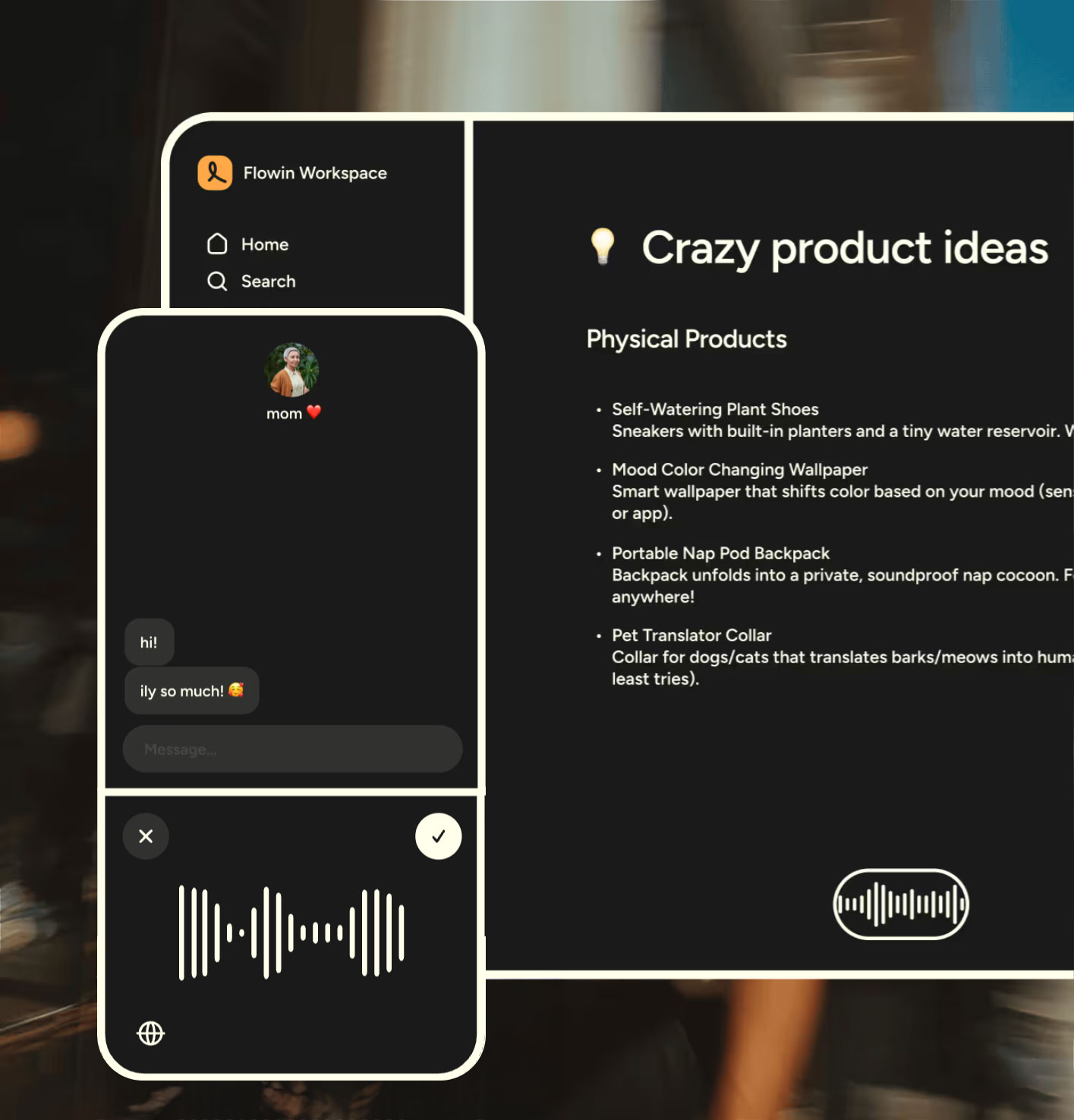Seamless voice dictation has long been a holy grail in technology. We still primarily rely on a keyboard to convey our thoughts, intents, and instructions to digital systems—a tool designed over 150 years ago for the mechanical era, not the AI age. In fact, average typing speeds have substantially decreased in the past 15 years due to the widespread adoption of smartphone keyboards. Simply put, the keyboard is holding us back; we’re all tired of waiting for our thumbs to catch up with our thoughts.
However, despite decades of effort and dozens of products, no previous voice dictation solution has delivered the promised vision. Traditional voice transcription tools have remained cumbersome, plagued by high error rates and frequent corrections. We’ve all tried dictating a message only to spend more time editing the output than if we had typed it from scratch.
Wispr fundamentally transforms this experience for everyone. Their flagship product, Wispr Flow, is the first voice interface I’ve used that feels genuinely effortless, reliable, and accurate. It goes beyond mere transcription; Wispr understands user intent, seamlessly managing the nuances of natural speech—pauses, filler words, mid-sentence stream-of-consciousness adjustments—and translates them into clean, structured text that rarely needs any correction.
This is why I’m thrilled to announce that Menlo Ventures is leading Wispr’s $30 million Series A. Wispr is not just creating another dictation tool; they are developing a foundational voice layer for technology—a fluid, intelligent, and genuinely intuitive interface for all humans.
Do What I Mean, Not What I Say
A key innovation is Wispr Flow’s emphasis on a “zero-edit-rate” of the entire transcription rather than the traditional dictation metric of average error rate for individual words. Legacy dictation tools may claim 98% average word accuracy, but even then, an 80-word message (about five or six sentences) will still have errors over 80% of the time. This metric further ignores critical “non-phonetic” issues such as formatting, deep contextual understanding of proper nouns and homophonic words, and many nuanced problems essential to capturing true user intent, including our very human tendencies to reverse or correct ourselves when talking. Wispr Flow, by contrast, already achieves over an 80% zero-edit rate—a figure that continues to improve through ongoing research and development. Consequently, after six months, over half of users now write over 70% of their characters with Flow across an average of over 60 apps.
The average person spends five hours a day typing. With Wispr, that drops to just three—saving users the equivalent of 21 days per year.
Founders Who Inspire
In my two decades in Silicon Valley, I’ve rarely encountered founders as thoughtful, calibrated, and with such impeccable product and engineering taste as Wispr’s co-founders, Tanay Kothari (CEO) and Sahaj Garg (CTO). Tanay and Sahaj bring rare early experience from Stanford’s top AI labs, where they worked under Andrew Ng and Stefano Ermon. As undergraduates, they led research efforts and even managed graduate students. One successful founder they previously worked under told me, “They are the only people I’ve encountered in my career who I would work for if I wasn’t running my own company.” (for readers of this post, yes Wispr is hiring!) As a fellow founder, I share this exact same sentiment, and after nearly four years of helping Tanay and Sahaj with Wispr part time, I’m honored and excited to be joining Wispr’s Board.

A Paradigm Shift for Humanity
Each day, humanity collectively spends over one million years interacting with digital devices. Wispr aims to dramatically enhance this daily experience for everyone, moving us from awkwardly yelling fixed commands (or just yelling) at our devices to naturally conversing with them. This isn’t an incremental improvement; it’s a fundamental transformation in computing and communication. Wispr envisions a world where digital interaction is as natural and effortless as human conversation. Crucially, Wispr prioritizes universal accessibility. Their intuitive voice AI technology benefits everyone, not just tech elite and early adopters. Supporting dozens of languages and actively used in over 100 countries, Wispr demonstrates its commitment to empowering billions globally.
Menlo Ventures is proud to welcome Wispr to our family. Together, we’re redefining how humanity communicates with technology—one conversation at a time.
Matt Kraning is a partner at Menlo Ventures focused on AI, enterprise SaaS, national defense, and cybersecurity—areas where he has both built and sold. Before joining Menlo, he co-founded and served as CTO of Expanse, a category-creating data and cybersecurity company that Palo Alto Networks acquired for $1.25 billion. At…





